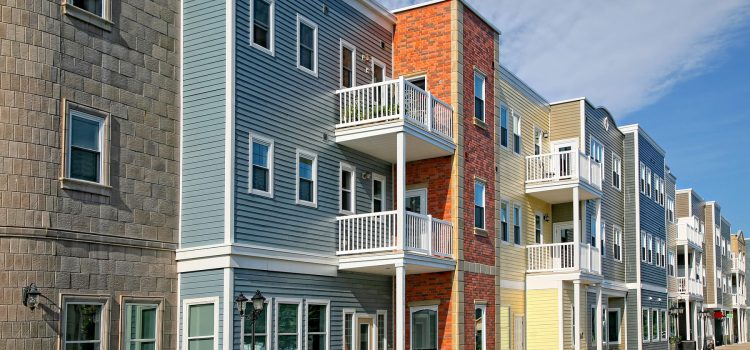
Changing the Game: Strategies for Affordable Housing in America
In America, the pursuit of affordable housing is a game-changer that can redefine lives and communities. However, the ever-increasing cost of housing has made this pursuit increasingly challenging. In this article, we will explore game-changing strategies to transform affordable housing in America. Drawing on the expertise of industry veteran Bob Sulentic, we’ll delve into innovative solutions that have the potential to reshape the future of housing, making it more accessible to all.
The Affordable Housing Challenge
Before we dive into solutions, it’s crucial to understand the scope of the affordable housing challenge in America. This crisis is characterized by soaring home prices, stagnant wages, and a lack of affordable rental options.
Key Statistics:
| Statistic | Data |
|---|---|
| Median Home Price (2023) | $350,000 |
| Minimum Wage (Federal) | $7.25/hour |
| Annual Income Needed for Median Home | $72,000 |
These statistics paint a stark picture. In 2023, an individual would need an annual income of $72,000 to afford a median-priced home—far exceeding the federal minimum wage. This income disparity underscores the urgency of addressing the affordable housing crisis.
Government-Led Initiatives
Government initiatives play a pivotal role in reshaping affordable housing. Federal and state governments have the potential to implement policies and programs that create housing opportunities for all Americans.
Low-Income Housing Tax Credits
The Low-Income Housing Tax Credit program incentivizes private developers to construct affordable housing units. By offering tax credits to developers, this initiative stimulates the construction of housing options for low-income individuals and families.
Section 8 Housing Vouchers
Section 8 Housing Vouchers provide critical assistance to low-income families, helping them cover their rental payments. Recipients of these vouchers contribute a portion of their income towards rent, making housing more affordable and stable.
Public Housing Programs
Public housing programs offer subsidized housing for individuals and families in need. These programs ensure that those with limited financial resources have access to safe and affordable housing options.
While government initiatives are essential, addressing the affordable housing crisis requires a comprehensive approach.
Architectural Innovation
Innovative architectural approaches can significantly reduce housing costs. Sustainable designs, efficient space utilization, and alternative construction methods can make homes more affordable. Concepts like tiny homes and modular construction are gaining prominence for their cost-effectiveness and environmental benefits.
Tiny Homes
Tiny homes have emerged as a practical solution to affordability challenges. These compact, efficient dwellings offer several benefits:
- Lower Construction Costs: Smaller footprints require less material and labor during construction, reducing overall costs.
- Energy Efficiency: Tiny homes are easier to heat and cool, resulting in lower utility bills for occupants.
- Minimal Maintenance: With less square footage, there is less to maintain, lightening the burden on homeowners.

Image by: https://tinylivinglife.com/
Community Land Trusts
Community land trusts are a powerful tool in reshaping affordable housing. By acquiring land and holding it in trust, communities can ensure that housing remains affordable for generations.
Advantages of Community Land Trusts
- Long-Term Affordability: Housing remains affordable as land appreciates in value.
- Local Control: Communities dictate the use of the land, aligning it with their needs and values.
- Stable Communities: Community land trusts promote community development and cohesion.
Corporate Collaboration
Corporate partnerships can play a pivotal role in addressing the affordable housing challenge. Companies can invest in affordable housing initiatives, leveraging their resources and expertise to create a meaningful impact.
Corporate Initiatives
- Employee Housing Programs: Some companies provide housing assistance to employees, recognizing the importance of stable housing in their well-being.
- Impact Investing: Corporations can invest in affordable housing projects, generating returns while making a positive social impact.
- Skills Training Programs: Initiatives that prepare individuals for careers in construction and related fields help address workforce shortages in the housing sector.
Community Engagement
Community involvement is pivotal in the success of any affordable housing project. Engaging with local residents ensures that housing solutions are tailored to their specific needs and align with the character of the neighborhood.
Benefits of Community Engagement
- Tailored Solutions: Housing designs and plans reflect community preferences, ensuring they are both functional and culturally appropriate.
- Social Cohesion: Community engagement fosters a sense of ownership and belonging among residents.
- Transparency and Trust: It builds trust between developers and residents, fostering a more collaborative and positive atmosphere.
Conclusion
Reshaping affordable housing in America is a game-changing endeavor. It demands a holistic approach, combining government initiatives, architectural innovation, community engagement, and corporate partnerships. By embracing these strategies collectively, we can transform the future of housing, making it more inclusive and accessible to all Americans.
The affordable housing crisis may be challenging, but with the right strategies and the collective effort of individuals, communities, and organizations, we can change the game and create a future where affordable housing is not a dream but a reality for everyone.










